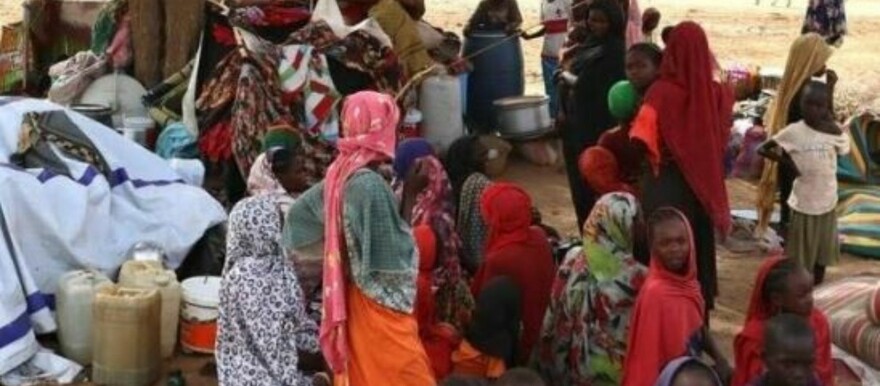The coordinator of the Community Empowerment for Progress Organization (CEPO) in Western Bahr el Ghazal State has disclosed that the humanitarian situation in Raga County is deteriorating as Sudanese refugees and returnees fleeing the war in Sudan arrive daily.
Stephen Robo Musa, who is also a civil society activist, told Radio Tamazuj that the influx has made life difficult for both the residents of the county and the newcomers who are equally finding it difficult to find food. He said that malwa (3.5 kg) of sorghum now costs SSP 7,000 and yet it is scarce in the market and many people have resorted to surviving on wild fruits and plants.
“The current cost of living is very high for the civilians in the Raga area. A malwa of dura (sorghum) which you can easily get at between SSP 3,000 and 4,000 in Wau costs 7,000 in Raga and it is not available,” he said. “The civilians now depend on tree leaves, particularly of the Ambisi tree. Every day there is an increase in new arrivals from Sudan and this has also created security threats in the area.”
“The numbers of returnees and refugees has become so big that local families are finding it difficult to accommodate them,” Robo added.
He pointed out that the situation of the people who fled from Sudan is dire and they need urgent relief aid.
When contacted, the chairperson for the Relief and Rehabilitation Commission (RRC) in Western Bahr el Ghazal State, Bahrsam Musa Ayaga, confirmed the dire situation of the people who fled from Sudan but said only those within Raga town are in bad shape but that those in Boro Madina got support from humanitarian agencies.
“I have information from my coordinator in Raga that the situation in Boro Madina is good because there are organizations that went there and gave a lot of support. Red Cross, UNHCR, IOM, and other NGOs operating in Raga are on the ground and working well in Boro Madina,” he explained. “However, there is a problem in the areas of Siri Malaga and Frica, these are the areas where no organizations are helping the people.”
“In the last three months, 1,895 households of returnees comprising 6,129 individuals arrived in Raja,” Ayaga added.
When asked about the role of the Relief and Rehabilitation Commission in helping refugees and returnees, he responded that being a government entity, they do not have the resources to intervene. He said they only ask NGOs to offer assistance to needy populations.
“We do not have anything in our hands as government so we ask humanitarian organizations to move there and help but they always tell us they work on a budget,” Ayaga explained. “It was WFP helping but their situation is also not good.”
Last December, Raga County Commissioner Arkangelo Musa told this publication that his county had an open-door policy to receive returnees and refugees who are fleeing the conflict in Sudan.




